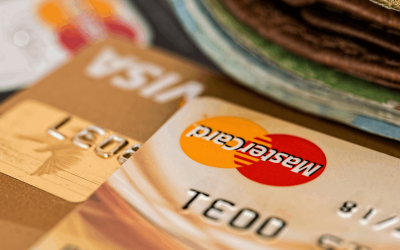Divorce brings a whirlwind of emotions, and if you’re a business owner, the stakes are even higher. The potential impact on your business could be significant, affecting everything from ownership rights to daily operations. Furthermore, the thought of losing control over what you’ve built is daunting, and the emotional toll can feel overwhelming.
It’s important to remember that you’re not alone in this process, and with the right knowledge and support, you can protect what you’ve built. Understanding Wisconsin’s laws and taking the right steps can help you preserve your business.
At Vanden Heuvel & Dineen, S.C., our experienced divorce attorneys understand the complexities you’re facing. With over 40 years of experience, we’ve helped clients navigate the challenges of divorce, ensuring that their interests are safeguarded every step of the way. Below, we provide a comprehensive guide on how to protect your business assets during a divorce in Wisconsin.
Understanding Wisconsin’s Divorce Laws
When facing a divorce in Wisconsin, it’s essential to understand how the state’s laws govern the division of assets. Here is what you should know about the state’s divorce laws:
Community Property vs. Equitable Distribution
Wisconsin operates under a community property system. Unlike states that follow equitable distribution, where assets are divided based on fairness, community property laws mandate a 50/50 split of all marital assets. This means that most assets acquired during the marriage are considered jointly owned by both spouses.
This approach treats marriage as a partnership where both parties contribute equally, regardless of who earned the income or whose name is on the title. Consequently, in the event of a divorce, these assets are typically split 50/50 between the spouses.
Marital vs. Separate Property
Understanding the distinction between marital and separate property is crucial when protecting your business in a divorce. Marital property generally includes any assets acquired during the marriage, regardless of who purchased them. On the other hand, separate property refers to assets owned by one spouse before the marriage or acquired individually through inheritance or gifts during the marriage.
When it comes to business assets, the situation can become complicated. If you started or grew your business during the marriage, it may be considered marital property, subject to division. Factors like the source of funding, the involvement of both spouses, and any agreements, such as prenuptial or postnuptial contracts, can influence this determination.
Preemptive Measures to Protect Business Assets
Below are some strategies that can help you protect your business assets during a divorce:
Prenuptial and Postnuptial Agreements
A prenuptial agreement, signed before marriage, outlines the ownership of assets, including your business, and can prevent it from being considered marital property. Similarly, a postnuptial agreement serves the same purpose but is signed after the marriage has begun.
These agreements are essential tools that clarify each party’s rights and responsibilities concerning the business. It’s important to include specific provisions that address the valuation of the business, how income and growth will be handled, and what will happen to the business in the event of a divorce.
Business Structure and Ownership
Establishing your business as a limited liability company (LLC) or corporation can help separate your personal assets from your business assets. This separation can limit the impact of divorce on your business, as personal liabilities are distinct from those of the business.
In addition to selecting the right structure, it’s important to have clear ownership agreements and bylaws in place. These documents should outline each owner’s rights and responsibilities and establish procedures for handling ownership changes.
Buy-Sell Agreements
A buy-sell agreement outlines what happens to an owner’s share of the business if certain events occur, such as a divorce. The agreements often include provisions that allow the remaining owners to buy out the divorcing owner’s interest, ensuring that the business remains stable and under control.
Key elements of a buy-sell agreement should include the method for valuing the business, terms for payment, and conditions under which a buyout can occur. Setting these rules in advance can prevent conflict and ensure a smoother transition. The rules protect the business from the potentially disruptive effects of a divorce.
Valuation of Business Assets
Accurate business valuation is essential during divorce proceedings. It ensures that both parties receive a fair distribution of assets and that the business is properly accounted for in the settlement. There are several methods to value a business:
- Income approach: This method estimates the value based on the business’s potential to generate future income.
- Market approach: This method compares the business to similar companies that have been sold recently.
- Asset approach: This method calculates the value based on the total value of the business’s assets minus its liabilities.
Given the complexity of business valuation, hiring a certified professional is often the best way to ensure accuracy. A professional valuator brings expertise and objectivity, providing a thorough and unbiased assessment of your business’s worth.
Legal Strategies During Divorce
When facing a divorce, the following approaches can help you maintain control over your business:
Negotiating a Settlement
This approach allows you to work out an agreement that safeguards your business interests while avoiding the uncertainties of a court decision. Mediation and collaborative divorce methods are particularly useful. These methods encourage open communication and cooperation, often leading to more favorable outcomes for both parties.
Offering Other Assets
This approach involves offering your spouse assets of equivalent value in exchange for their share of the business. Examples might include real estate, retirement accounts, or other valuable assets. This strategy can be a practical way to retain full ownership of your business while still reaching a fair settlement.
Spousal Buyout
A spousal buyout allows one spouse to buy out the other’s interest in the business, ensuring that ownership remains with the original owner. Financing options for a buyout can include using personal funds, securing a loan, or even structuring a payment plan over time. A well-structured buyout agreement can prevent the business from being divided and help maintain its long-term stability.
Post-Divorce Business Management
After a divorce, you should take the following steps to ensure your business’s continued success:
Updating Legal Documents
Updating your legal documents ensures that your business reflects any changes in ownership or management resulting from the divorce. Review and revise key documents, such as ownership agreements, bylaws, and any contracts that may be affected.
Maintaining Professional Relationships
After a divorce, clients, employees, and partners need reassurance that the business remains stable and that operations will continue as usual. Develop a clear communication plan to inform stakeholders of any changes in a way that instills confidence. Transparent communication maintains trust and keeps your business relationships strong during this transition.
Hire a Family Law Attorney for Professional Guidance
Divorce can have a profound impact on business owners, potentially putting their hard-earned assets at risk. That’s why you should proactively protect your business during a divorce to ensure its survival and your financial future. Staying informed and prepared can make all the difference, and the best way to do that is to work with an attorney who understands both divorce and business law.
An experienced attorney can guide you through the complexities of asset protection, helping you secure your interests and make informed decisions. If you’re facing a divorce and need professional guidance, consider working with an experienced divorce attorney from Vanden Heuvel & Dineen, S.C.
We understand the complexities of divorce and are dedicated to helping you make the best decisions throughout the process. Contact us today to connect with one of Wisconsin’s most qualified attorneys and protect what matters most to you.




